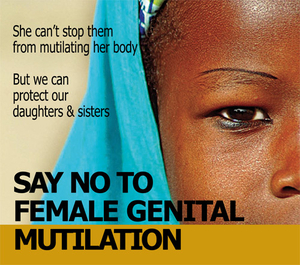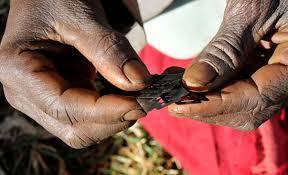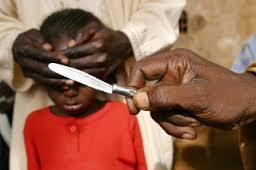This blog post will be part of a continuing series in conjunction with the LA Chapter of the US National Committee (USNC) for UN Women, and the chapter's Founder & President, Cathy Hillman. UN Women's vision is a world in which societies are free of gender-based discrimination, where women and men have equal opportunities, where women and girls are empowered to lead the change that they want to see, and where women's rights are upheld in all efforts to further development, human rights, peace and security.
The LA Chapter specifically works to connect the lives of local women to the struggles of women around the world. Our chapter seeks to enable local women and girls to live the change they want to see in the world, together with the broader goals of UN Women. 'From local to global'. USNC LA is dedicated to building an inclusive community of like minded people, who endeavor to live the change they would like to see in the world. We focus on innovative engagement to spread the cause of UNWomen and its message of equity and gender equality in every walk of life.
This column aims to raise awareness about the plight of women around the world by changing perceptions that serve as impediments to the equal rights of women in civil societies. It seeks to empower women to question traditions that dis-serve them and raise future generations that can surmount the historic limitations that have been placed on them, to chart their own course to a better future.
***
On Wednesday August 12th, The LA Chapter of the US National Committee for UN Women held its Chapter meeting in West LA, with a very special speaker.
Mahlet Atakilt Woldetsadik is a Doctoral Candidate at the Pardee RAND Graduate School and an Assistant Policy Analyst at the RAND Corporation. She grew up in Ethiopia and conducts research on gender issues including Female Genital Cutting in Somali communities and the impact of interpersonal or sexual violence on women and their families in a range of African countries. Her talk at the LA Chapter of UN Women was centered on female genital cutting, often referred to by the acronym FGM -- which stands for the harsher terminology: Female Genital Mutilation.
The practice is common in many African and some Middle Eastern countries. The 2013 UNICEF* report on FGM showed the practice most prevalent in Egypt, Somalia, Ethiopia and Nigeria. Recently Nigeria and Somalia outlawed the practice. Still, it prevails in secret, through the work of midwives for whom the ritual is an income stream, and in private homes where the idea of not perpetuating the tradition is a non-starter. It is estimated that in some tribal areas where patriarchal traditions are prevalent, nearly all young girls (9 out of 10) have been subject to some measure of cutting. Ms. Woldetsadik has researched the issue and has learned that the practice is so common-place as to be enforced by the matriarch as a rite of passage for girls and a point of pride for families to whom honor means a great deal. That honor is embodied in their girls and the practice of cutting operative parts of the sexual organ assures the purity of the girl, and her eligibility for marriage. It also reinforces her place in society as one who serves, without acting for pleasure.
The parallel of female cutting is often drawn with male circumcision. But in the case of male circumcision, research has shown that there can be medical and hygienic benefits to cutting the foreskin on the male genitalia. AIDS is less readily contracted and cleanliness is more readily practiced. In the case of female genital cutting, there is no demonstrable health benefit, while the nerve center of the female sexual organ is eliminated. The practice can lead to complications which often cause profuse bleeding and medical emergencies of the sort that mid wives in rural villages are hardly equipped to manage. While robing the girl of her dignity and threatening her well being, the practice cements her submission to relinquishing agency over her own body, and becoming the agent for procreation. Allowing this in the name of Tradition, in a modern world, is a dark mark on our civilization.
According to research cited by Ms. Woldetsadik, FGM is alarmingly on the rise in the US. California is among the states with the largest number of at risk women and girls, with thousands estimated to be at risk. Reconstructive surgery is an option for recourse, and increasingly, on the rise. There is legal recourse in the US, for women who realize they have been cut. But most girls do not wish to pain their families or criminalize their parents, so the offense goes unreported and unpunished.
Education, not surprisingly, is the breaking point. Women with an education are less likely to perpetuate the tradition and submit their daughters to the ritual cutting. Girls who are educated are more likely to refuse the tradition and be able to talk their mothers, or even the elders, out of the practice. Once the elders are convinced, fathers join the ranks of skeptics who choose to spare their daughters from the horror and the humiliation of female genital cutting.
Today with the power of digital advocacy, we can all raise our voice against this horrifically brutal practice, that abuses girls at an age when they are too young to defend themselves. Male or female, we can all speak out against female genital cutting. The matriarchs may be the ones marching their daughters into the cutting chamber, but the fathers and the brothers and the elders perpetuate the tradition with a heavy hand. Join the conversation for women's rights and advocate against this practice. Engage the men in your life, and bring them into the conversation. The LA Chapter of USNC for UN Women is sponsoring a #HeForShe campaign, bringing everyone into the conversation for solutions. Join the movement online and post your picture saying why you are #HeForShe, with the hashtag #HEFORSHELA and @UNWomenLA, to join the conversation. Women everywhere need to you to engage and empower the global struggle for gender fairness across all traditions.
- Join the movement online at FB www.facebook.com/UNWOMENLA and Twitter: @UNWOMENLA
- HeForShe LA Ticketing: http://www.eventbrite.com/e/heforshe-la-tickets-17843063082?aff=es2
- Click here to learn more about UNWomen: http://www.unwomen.org/en/about-us/about-un-women
- Join the LA Chapter here: www.unwomen-usnc.org/greaterla
- Click to Link to UNICEF study: http://www.unicef.org/cbsc/files/UNICEF_FGM_report_July_2013_Hi_res.pdf



